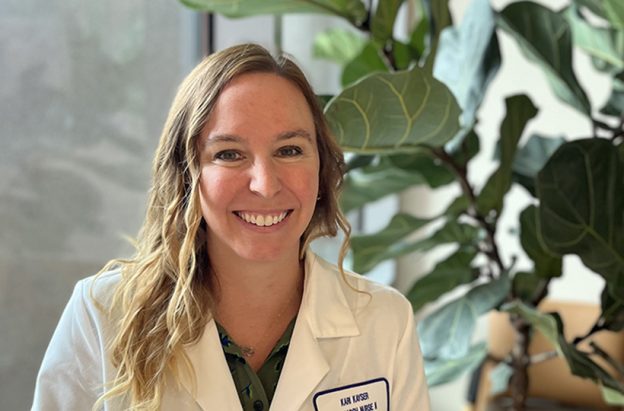
Living a childhood dream as a research nurse
*Second in a series highlighting research nurses during Nurses Week 2025*
Kari Kayser, RN, works at the Kaiser Permanente South Bay Medical Center with the CCTAP (Cancer Clinical Trials Access Program) team. Her choice to dress as a nurse on career day as a kindergartener showed an early passion for a vocation that she now loves and embraces.
Growing up, she enjoyed playing sports and always showed empathy for the health and well-being of those around her. These personality traits led her to nursing, setting her on a career path where she could fulfill her genuine love for helping and caring for people.
“What I didn’t realize at the early stages of my career was how nurses could be involved in the field of research,” Kari said. “That all changed when I began working in an ICU.”
There, she met a research nurse who had enrolled a young patient with a traumatic brain injury in a clinical trial. “I was fascinated — and instantly knew I wanted to be a part of that world,” she said.
Today, she relishes talking to others about the roles nurses play in research. She views research as a special – and often overlooked – part of nursing. and feels fortunate to be a part of it.
Her career has brought her many fulfilling experiences, but one stands out that brings particularly satisfying memories. One day at work, she met with a doctor and a research participant who had Stage 4 cancer to review the patient’s latest scans. The patient was relieved to hear that her cancer had a good response and was stable.
The moment is etched in her mind as a reminder of how meaningful it is to be part of a team that can offer patients hope and options beyond standard treatments.
Kari believes that nurses play vital roles on research teams. “With their training as patient advocates, nurses ensure that each patient’s well-being remains a top priority,” she said. “Their presence also adds an extra layer of safety to trial participation as they carefully monitor side effects and help to uphold the highest ethical standards throughout the research process.”





